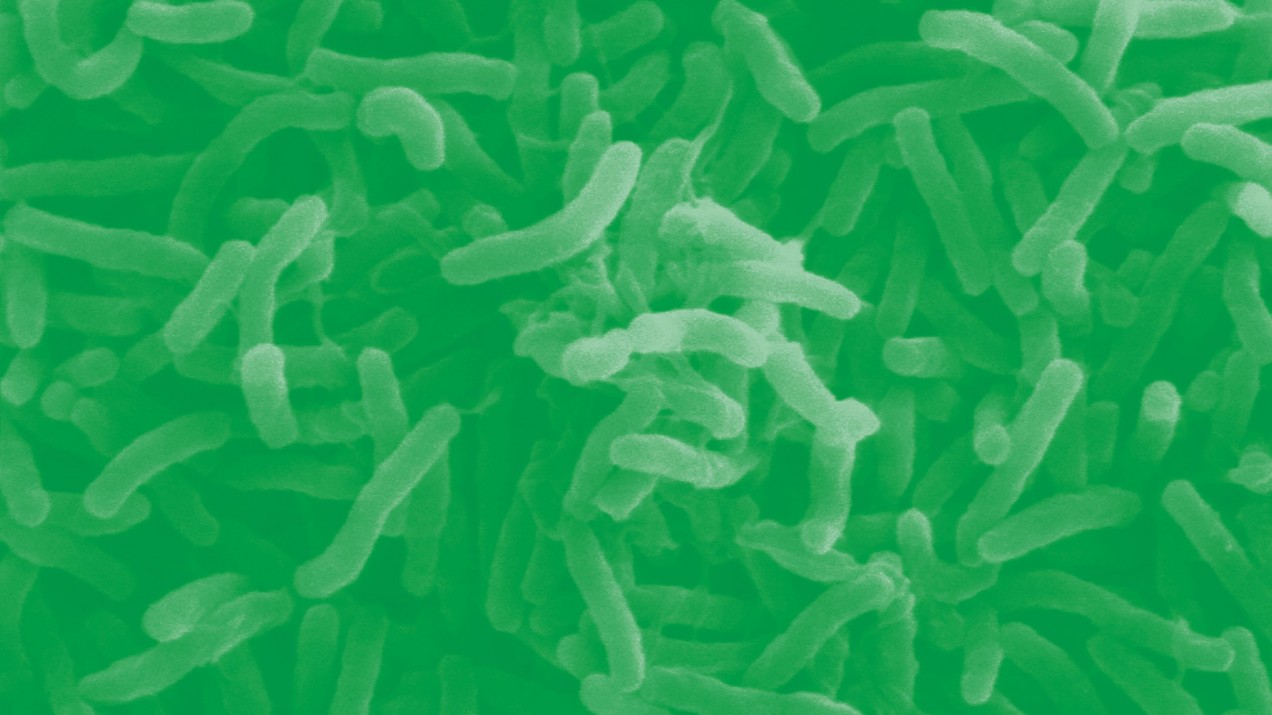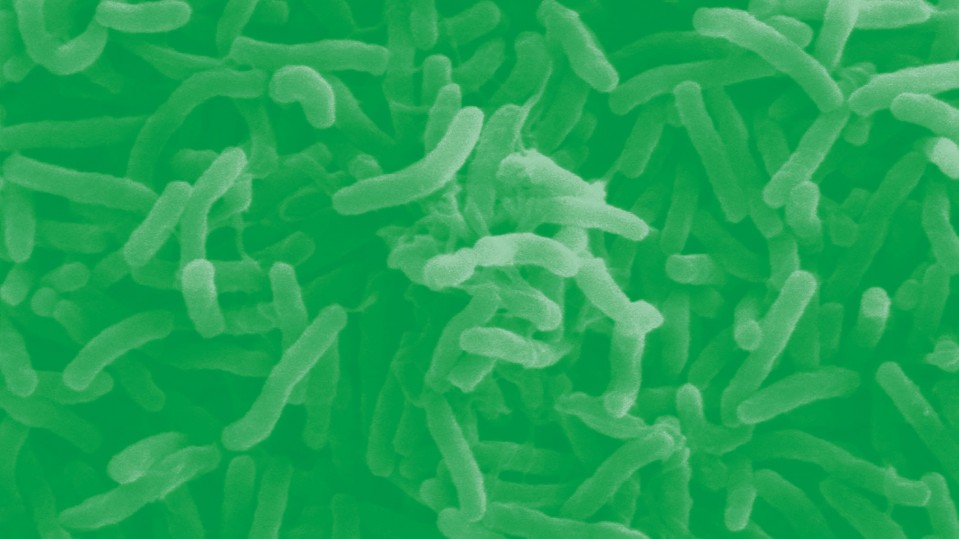

Controlling cholera with microbes
Engineered bacteria can prevent, diagnose, and treat infections.

MIT engineers have developed a mix of natural and engineered bacteria designed to diagnose and treat cholera, an intestinal infection that causes severe dehydration.
Cholera outbreaks are usually caused by contaminated drinking water, and infections can be fatal if not treated. The most common treatment is rehydration, which must be done intravenously if the patient is extremely dehydrated. However, intravenous treatment is not always available, and the disease kills an estimated 95,000 people per year.
The MIT team’s new probiotic mix could be consumed regularly as a preventive measure in regions where cholera is common, but it could also be used to treat people soon after infection occurs, says biological engineering professor James Collins.
“Our goal was to use synthetic biology to develop an inexpensive means to detect and diagnose as well as suppress or treat cholera infections,” he explains. “If one could inexpensively and quickly track the disease and treat it with natural or engineered probiotics, it could be a game-changer in many parts of the world.”
The researchers chose Lactococcus lactis, a strain of bacteria used to make cheese, and engineered into it a genetic circuit that detects a molecule produced by Vibrio cholerae, the microbe that causes cholera. When engineered L. lactis encounters this molecule, it turns on an enzyme that produces a red color detectable in stool samples.
Serendipitously, while working on a way to further engineer L. lactis so that it could treat infections, the researchers discovered that the unmodified bacterium can kill cholera microbes by producing lactic acid. This natural metabolic by-product makes the gastrointestinal environment more acidic, inhibiting the growth of V. cholerae.
In tests in mice, the researchers found that a mixture of engineered and unmodified L. lactis could successfully prevent cholera from developing and could also treat existing infections. The MIT team is now exploring the possibility of using this approach to combat other microbes.
“There is emerging interest in using probiotics to treat disease, largely from the growing recognition of the microbiome and the role it plays in health and disease and the pressing need to find alternatives to antibiotics,” Collins says.